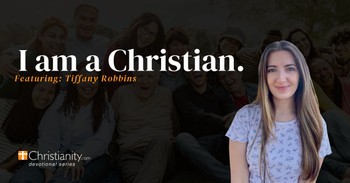Reading, Part One
by Charles R. Swindoll
The three Rs have stood the test of time as reliable criteria for a dependable education. They are poised like disciplined sentinels against one of man's greatest enemies: ignorance. The original blocks of granite, unimpressed by educational styles, unmoved by change, these three solid friends are trustworthy to the end. Like salve on an open sore, they reduce the fever of panic, giving stability when so many voices demand obedience.
But there is a fly in the ointment . . . one chunk of granite is beginning to crack . . . the sentinel is getting sleepy. The enemy has found the chink in our armor. He has discovered that the first "R" is up for grabs in the twenty-first century. And he is smiling.
"Send me a man who reads" is no longer the clarion call of industry or management . . . or sales, for that matter. Nor is the professional person necessarily known today, as he once was, for his breadth of knowledge . . . and that includes (much to my disappointment) the clergy.
Few current tragedies pain me more. It is now a fact that one half of the students who graduate from college never read another book. Even though a Ph.D. is virtually obsolete in five years unless he or she continues to read, many of them opt for an easier out. It would shock us all if we knew how little the person reads who defends us in court or does surgery on our bodies or gives us financial counsel. Aside from daily doses of TV Guide, a chuckle at "Peanuts" on Sunday, and a quick skim over the sports section, many an American never cracks another magazine or book.
It's amazing! Before kids are in school, they can give you the day, hour, and channel for a dozen different TV programs, but have trouble struggling through Dick and Jane Play with Spot into the second and third grades. Little Leaguers can spit out the batting averages, RBIs, and stolen base totals for each of their favorite baseball pros . . . but stick a copy of Tom Sawyer in front of them (or their parents!) and boredom strikes like summer lightning. A growing number of California high school grads have trouble comprehending basic application forms for employment.
Enough about the problem; let's consider the benefits. I can think of four. Here's the first:
1. Reading sweeps the cobwebs away.
It enhances thinking. It stretches and strains our mental muscles. It clobbers our brittle, narrow, intolerant opinions with new ideas and strong facts. It stimulates growing up instead of growing old.
Francis Bacon's famous rule is so true, so good:
Read not to contradict or confute, nor to believe and take for granted, nor to find talk and discourse, but to weigh and consider. Some books are to be tasted, others to be swallowed, and some few to be chewed and digested.
Reading expands us. It scratches those itches down deep inside. It navigates us through virgin territory we would not otherwise explore. Tomorrow I'll share three additional benefits. Until then, try reading something expansive!
Reading clobbers our narrow, intolerant opinions with new ideas and facts. —Chuck Swindoll Tweet This
Excerpted from Come Before Winter and Share My Hope, Copyright © 1985, 1988, 1994 by Charles R. Swindoll, Inc. All rights reserved worldwide. Used by permission.
Our Gift to You . . .

Answers for the World's Tough Questions Passport
In appreciation of your support of Insight for Living Ministries, you can choose to receive this resource when you donate today.
This pocket-sized guide is a quick-reference for some of the nagging questions and criticisms concerning Christianity. This resource draws on both reason and biblical revelation to help you think through your responses.
Used with permission. All rights reserved.
Listen to today's broadcast of Insight for Living with Chuck Swindoll at OnePlace.com.
Visit the Bible-teaching ministry of Chuck Swindoll at www.insight.org.








